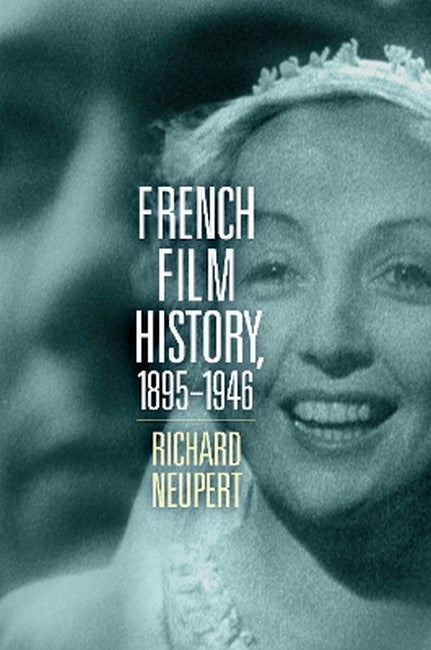Richard Neupert is the Charles H. Wheatley Professor of the Arts in the Department of Theatre and Film Studies at the University of Georgia. He is the author of A History of the French New Wave Cinema, French Animation History, and, most recently, John Lasseter.
Request Academic Copy
Please copy the ISBN for submitting review copy form
Description
List of Illustrations Acknowledgments 1 Science and Visual Culture in Nineteenth-Century France 2 LumiEre, MEliEs, and the Rise of Cinema in France 3 PathE and Gaumont Create a French Film Industry 4 French Production Practices of the 1920s: Revitalizing Art and Industry 5 Early 1930s French Cinema: The Transition to Sound 6 Late 1930s French Cinema: Innovative Style, Politics, and Poetic Realism 7 Occupation Cinema: A Fractured Nation and Film Community 8 Epilogue: Toward a New Era in French Cinema Bibliography Index
"French Film History 1895-1946 is a comprehensive summary of the first 50 years following the birth of cinema in France and includes a fascinating chapter on filmmaking under Vichy and the Nazi occupation (1940-45). French directors produced almost no overtly pro-German movies, seldom criticized the U.S. or Great Britain, slipped in some anti-Nazi references and generally maintained an ambience of ambiguity in the face of grave danger."--Shepherd Express "A seminal work of dedicated research and meticulous scholarship, French Film History, 1895 - 1946 is an extraordinary, impressive, detailed and informative history."--Midwest Book Review "An important supplement to the traditionally studied and taught figures and films of the era. . . . Erudite yet extremely readable. . . . Essential."--CHOICE Reviews "A deeply researched and compelling history of the first five decades of French cinema. Neupert freshens our understanding of iconic films and directors, while also unearthing new discoveries. French Film History reveals French cinema's national specificity as well as its global circulation and influence."--Kelley Conway, University of Wisconsin-Madison

